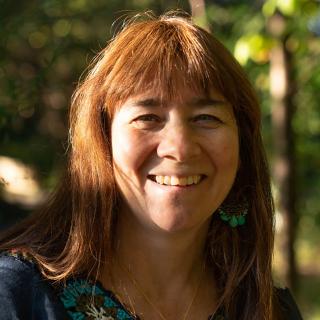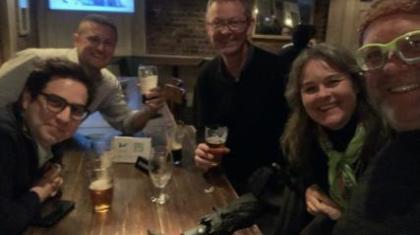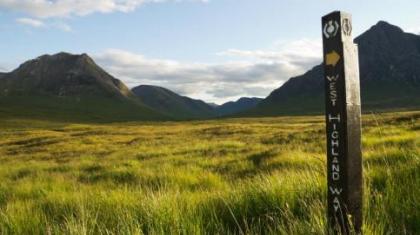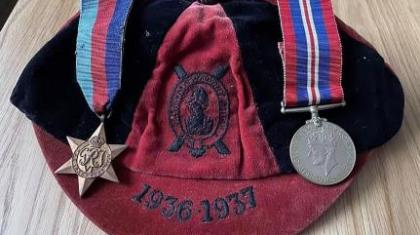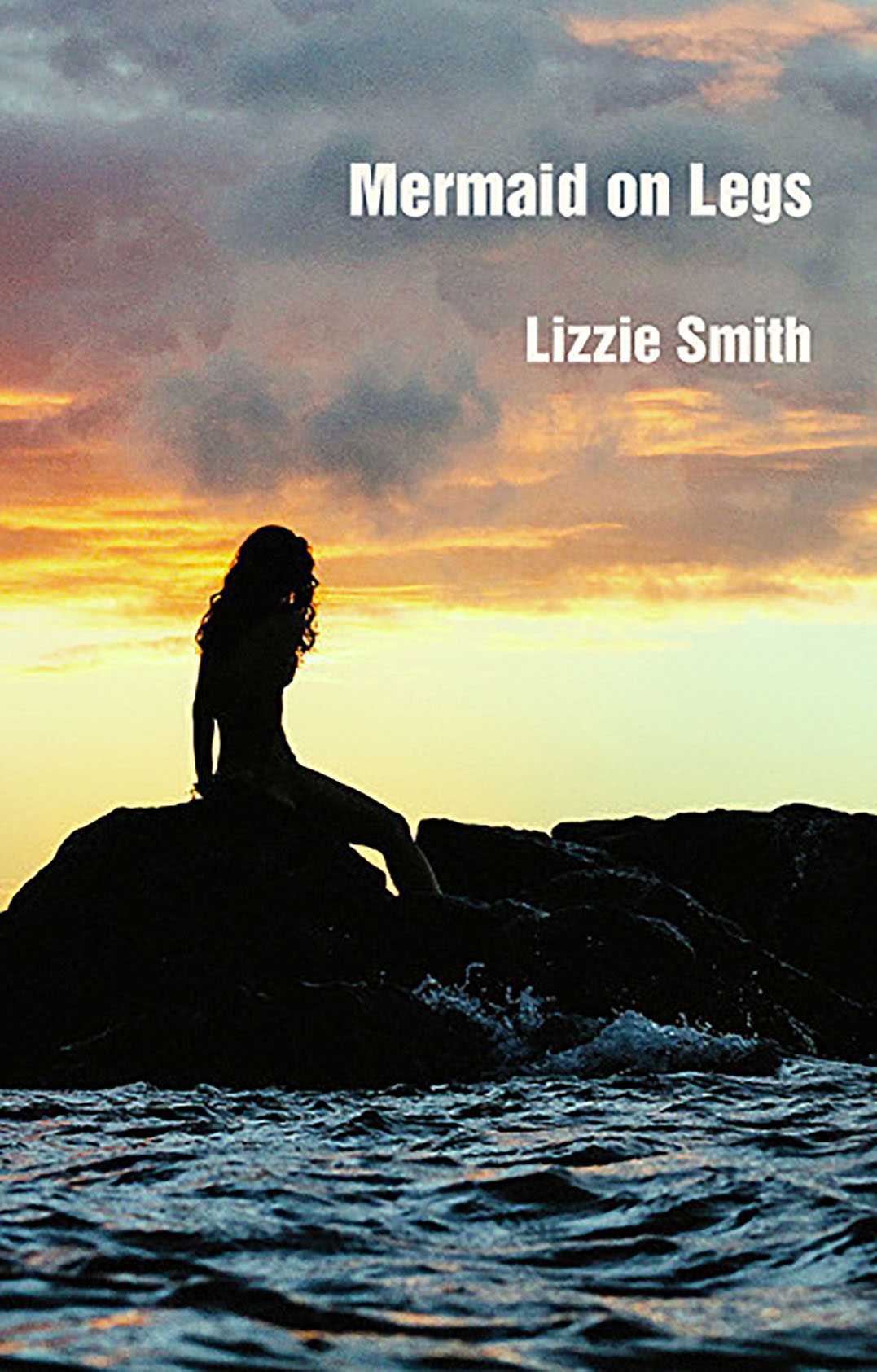 Mrs Lizzie Smith, English teacher at MES, has recently had her debut collection of poetry, Mermaid on Legs, published. Building up to this, Mrs Smith’s poems have featured in twelve poetry anthologies to date, as well as having a few winning poems posted online. Her first non-fiction book was published in summer 2020 too. We caught up with Mrs Smith after the Easter break to learn more!
Mrs Lizzie Smith, English teacher at MES, has recently had her debut collection of poetry, Mermaid on Legs, published. Building up to this, Mrs Smith’s poems have featured in twelve poetry anthologies to date, as well as having a few winning poems posted online. Her first non-fiction book was published in summer 2020 too. We caught up with Mrs Smith after the Easter break to learn more!
What inspired you to submit this collection?
I entered a few poetry collection competitions. I was shortlisted for two competitions at the same time and I chose to go with Indigo Dreams, as they are a colourful publishing house!
What themes do you write about?The sea, flowers, trees, birds, beasts, and bees! Being a woman, mother, and daughter. Loss. Love. Pain. Pollution.
What motivates you to write?
I think that artistic expression is an important part of everyone’s life. Putting words down can be therapeutic on a personal level. Now I am a published poet, I am amazed about how much my words can mean to other people. I have joined a circle of artists called WHAT, four of whom have illustrated my poems with big canvases. One of them even recited a poem to the surgeon in an operation recently! Hearing how my work has spread now motivates me to write more work that I am very happy to put out in public, for people to enjoy in whatever way they choose.
Do you prefer to write poetry or prose?
I am definitely more naturally a poet. However recently I have found that it has been easy to write non-fiction by talking about my daily life as a mother and a teacher. If you start off with blogs you can build up a much longer piece of work from those initial ideas.
What inspires you to write poetry?
I write increasingly about the natural world, as I feel traumatised by the damage we are inflicting upon the earth and the seas. On a personal level, I find it a good way to process strong emotions that come up, like anger - as well as expressing love for my children. I naturally incline to poetry, as it is a concise form that is almost like a photo snap, which frames a moment or an idea. I like playing with words and their associations too.
Which poets influence your writing?
Emily Dickinson, Carol Ann Duffy, Issa, and Shakespeare. And of course my father.
Are there any people or places which have particularly inspired you?
My Dad was a poet. Before I had proper bedtime stories, I sat on his knee and he used to recite poems in Ancient Latin and Greek to me! I have lived in Japan and was inspired to practice haiku and nature poetry for the next 30 years.
How did you feel when you published your first work? Were you afraid of criticism?
When I saw the front cover launched on Kindle or first held the book in my hand, I felt pleased with my accomplishment; but my overriding feeling was – wow, that was a lot of work. It is only further down the line, with a lot of positive feedback, that I feel really proud of what I crafted. The funny thing about the world of art is that I have only heard positive comments and praise, not criticism.
What was it like publishing a book during the pandemic? Did you worry about sales and reception or did you and your publisher have a plan in place to promote it?
I actually self-published one non-fiction book in the summer of the pandemic, as I realised it was taking longer for mainstream publishers to get to print. I also had my poetry collection published in the winter of the pandemic, after waiting for more than a year for the publisher to bring it out. It has been much harder to promote books, with bookshops being shut and not doing events. The reality in the modern world of publishing is that most authors have to do a lot of their own publicity through forums such as Facebook, Twitter, magazines, Open Mics and author events online.
You’ve written fiction and non-fiction – which do you prefer?
I tend towards fiction. I like not saying things straight, because you convey a truth that way. For example: women are like mermaids; mermaids are like women.
Tell us about your recent book, what was your inspiration?
I grew up in St Andrews near the North Sea. Recently I have enjoyed taking a dip in my wetsuit off Fife and East Lothian beaches, more in the summer I have to say! I started thinking about mermaids as a way of talking about my experience as a woman, as well as wider issues like the pollution of our wonderful seas. This was the inspiration for most of the poems in my recent book, Mermaid on Legs. Now, if I really was a mermaid, I might be a nearly extinct species…
Why did you pick the mermaid as a metaphor for talking about the environment/feminism?
The collection has these two strong themes. The mermaid or selkie has the body of a woman and the myths around her have mainly been built by male sailors. I wanted to give the Little Mermaid a voice. If you remember, in the fairy story, her voice was given to the witch, in order for her to have a shot at getting the handsome Prince.
The mermaid lives in the sea. The sea has become a dumping ground for the people on earth, and through the figure of a half-fish I can express how it feels to have your living environment polluted.
Did you set out to write these poems as a collection, or did separate poems eventually coalesce into a theme?
At some point I found that I was writing quite a lot of mermaid themed poems so I decided to expand on that idea to make a collection. It was fun to think of the different stages of the life of a mermaid, from girl to wrinkly old lady. It was a colourful way in which to talk about the blackness of pollution.

